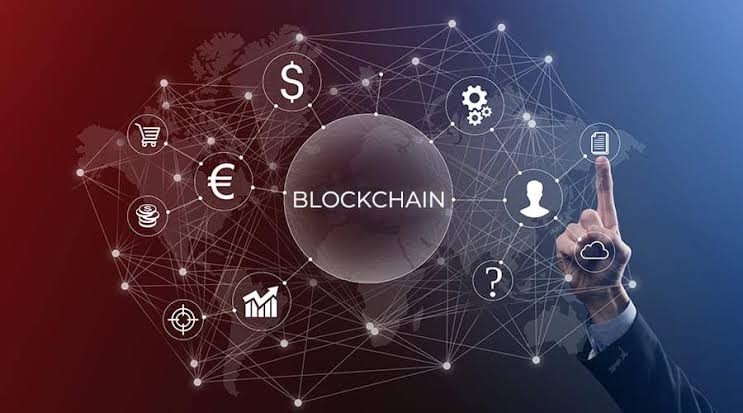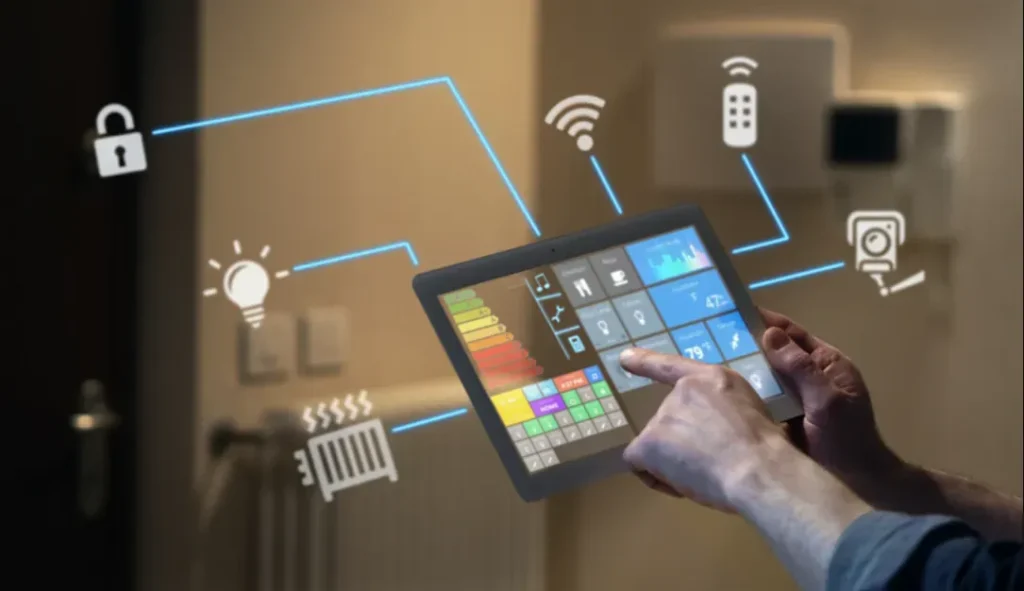
The next time you sip your morning coffee or scroll through your new smartphone, think about this: where did all the components come from? How were they transported? Who verified their authenticity? These questions, once near impossible to answer with certainty, are now being unraveled with surprising clarity—thanks to one powerful innovation: blockchain technology.
In a world increasingly driven by speed, transparency, and ethics, blockchain is quietly but profoundly revolutionizing supply chain management. While originally created for cryptocurrencies like Bitcoin, blockchain’s core features—transparency, immutability, and decentralized validation—make it uniquely suited to tackle the age-old inefficiencies of global supply networks.
Let’s take a journey through how this technology is shaping the future of supply chains—and why businesses that ignore it might soon be left behind.
The Supply Chain Struggle: A Broken System in Need of Repair
For decades, supply chain management has been plagued by fragmentation. Goods often pass through dozens of hands—manufacturers, suppliers, shippers, distributors, and retailers—before reaching the consumer. Each transaction typically involves separate systems, spreadsheets, or paper records. This results in delays, lack of visibility, human error, and vulnerability to fraud.
Consider the 2013 horse meat scandal in Europe, where horse meat was discovered in beef-labeled products across multiple countries. The root cause? A tangled web of opaque supply networks that made it nearly impossible to trace ingredients back to their source. That’s just one example among countless incidents involving counterfeit goods, stolen cargo, or ethically dubious sourcing.
The global logistics system is crying out for a solution. Enter blockchain.
What Is Blockchain, Really?
To put it simply, blockchain is a digital ledger—a secure, tamper-proof, and decentralized record of transactions. Unlike traditional databases maintained by a central authority, blockchain distributes its data across a network of computers, each holding a copy of the entire ledger. Every transaction, or “block,” is time-stamped and permanently linked to the one before it, forming a chain that is immutable and auditable.
For supply chain management, this means that every movement of a product can be logged, shared, and verified in real time by all parties involved.
According to IBM’s Blockchain for Supply Chain, this digital infrastructure enables smarter and more secure tracking of goods, dramatically improving efficiency and trust.
Real-World Story: From Bean to Brew
To see blockchain in action, look no further than your local coffee shop.
Companies like Starbucks have started using blockchain to let customers trace their coffee beans from the farm to their cup. By scanning a code on their cup, consumers can learn the exact origin of their beans, the farmers involved, and the route it took to reach them.
For coffee farmers, this isn’t just about transparency—it’s about empowerment. With blockchain, they can finally gain recognition for their product, demand fair pricing, and access financing using verified records. This democratization of data changes lives at the grassroots level.
Key Benefits of Blockchain in Supply Chain
1. End-to-End Transparency
Blockchain ensures that all stakeholders can view and verify every transaction along the supply chain. From raw materials to finished goods, no data can be altered without consensus. This reduces disputes and improves compliance, especially for industries with strict regulations, like pharmaceuticals.
2. Improved Traceability and Recall
When contamination or defects occur, companies often scramble to trace the source. With blockchain, products can be instantly traced back to their origin. Walmart has used blockchain to reduce the time it takes to trace mangoes from 7 days to 2.2 seconds—a game-changer for food safety.
3. Fraud and Counterfeit Reduction
Luxury brands and electronics manufacturers are adopting blockchain to prove product authenticity. Companies like Everledger use blockchain to certify diamonds and high-end items, safeguarding against counterfeiting and gray market reselling.
4. Efficiency and Cost Savings
By eliminating intermediaries and automating transactions through smart contracts, businesses can reduce paperwork, shipping delays, and manual errors. According to Deloitte, blockchain could potentially save trillions in trade-related costs annually.
Industries Embracing the Shift
The adoption of blockchain in supply chains is no longer theoretical. Major industries are integrating the technology with impressive results.
Pharmaceuticals: The FDA’s Drug Supply Chain Security Act mandates serialization and traceability of prescription drugs. Blockchain helps ensure drug integrity and combat counterfeit medications.
Fashion & Apparel: Brands like LVMH use blockchain to track the authenticity of luxury goods and prove ethical sourcing of materials like leather or diamonds.
Automotive: BMW’s PartChain project uses blockchain to trace auto parts from the supplier to the factory, ensuring quality and responsible sourcing.
Agriculture & Food: Companies like Provenance help farmers and food producers verify claims such as “organic” or “free-range” using blockchain, giving consumers peace of mind.
Challenges and Considerations
Of course, blockchain isn’t a magic wand. Its implementation faces hurdles:
- Scalability: Public blockchains can be slow and expensive to process high volumes of transactions.
- Integration: Legacy systems in supply chain operations aren’t always compatible with new blockchain infrastructure.
- Data Integrity: Blockchain secures data after it enters the system, but it can’t prevent false data entry—making quality control at the input stage critical.
- Regulatory Uncertainty: As with many emerging technologies, global regulatory standards are still catching up.
That said, the momentum is undeniable. According to Gartner, 25% of global companies are expected to adopt blockchain in supply chain operations by 2025.
The Human Angle: Trust and Accountability
Beyond the tech jargon and efficiencies, blockchain brings something more profound to the supply chain—trust.
When businesses, consumers, and suppliers can verify every transaction without relying on blind trust or third parties, relationships change. Buyers can hold sellers accountable. Suppliers can gain visibility and fair pricing. Consumers can shop ethically and confidently.
Take the example of fishing communities in Southeast Asia using blockchain to prove that their catch is sustainably sourced. With digital records, they are not only protecting marine ecosystems but also preserving local livelihoods. This human impact is where blockchain truly shines.
FAQ: Blockchain in Supply Chain Management
What is blockchain, and how does it relate to supply chain management?
Blockchain is a decentralized, digital ledger that records transactions across multiple computers. In supply chain management, it provides a transparent and tamper-proof record of every step in a product’s journey, enabling better traceability, accountability, and efficiency.
How does blockchain improve product traceability?
Every transaction or movement of goods is logged with a timestamp and location on the blockchain. This means companies can trace a product’s origin, route, and handling history in real time, allowing for faster recalls and quality control.
Is blockchain secure for sensitive supply chain data?
Yes. Blockchain uses advanced cryptographic techniques to secure data. Once data is entered, it cannot be altered without network consensus, making it ideal for safeguarding sensitive records.
Which companies are using blockchain in their supply chains?
Major companies like Walmart, IBM, BMW, Starbucks, LVMH, and Maersk are actively deploying blockchain to improve transparency, efficiency, and traceability in their supply chains.
Does blockchain work for small businesses?
While enterprise-level blockchain solutions can be complex, many startups and SMEs are adopting lightweight platforms like VeChain or OriginTrail that offer scalable, affordable blockchain tools for smaller supply chain needs.
What are the costs involved in implementing blockchain in supply chain?
Costs vary depending on the platform, integration, and scale. However, the long-term savings in efficiency, fraud reduction, and compliance can far outweigh the initial investment.
Can blockchain eliminate fraud in the supply chain?
While no system is foolproof, blockchain significantly reduces the opportunity for fraud by making records immutable and visible to all stakeholders. It ensures accountability at every step.
What are smart contracts, and how do they help supply chains?
Smart contracts are self-executing contracts coded on the blockchain. They automatically enforce rules and trigger transactions when conditions are met—like releasing payments when goods arrive. This reduces delays and manual work.
Conclusion: The Chain Reaction Has Begun
Blockchain isn’t just a technology trend—it’s a paradigm shift in how global commerce operates. By shining a light on every link in the supply chain, it dismantles the old structures built on opacity and inefficiency.
From the coffee farmer in Colombia to the auto manufacturer in Germany to the conscious shopper in New York, blockchain is building a network of trust across the world. It gives voice to the invisible, truth to the uncertain, and control to those who had little before.
For businesses, the question is no longer if they should adopt blockchain in their supply chain—but how soon. Starting small, collaborating with tech partners, and focusing on traceability can lay the groundwork for transformation.
So, the next time you unbox a product, pause and consider this: in the not-so-distant future, thanks to blockchain, you might know exactly where it’s been—and who helped bring it to you. Transparency isn’t a dream anymore. It’s already happening. And it’s here to stay.
Ready to explore how blockchain could transform your own operations? Start by mapping your supply chain and identifying key areas where transparency and traceability matter most. Then, explore blockchain platforms tailored for your industry—and start connecting the links in your chain.


